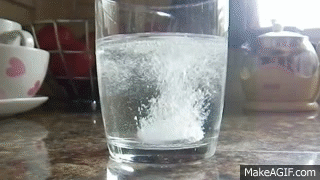
A famous performer from one of those movies is finally revealing the secret to lasting longer with a woman
Unsubscribe | Report as spam | Change email preferences
—-Important Message From Aaron Wilcoxx—-
Raunchy movie star reveals: industry secret to staying rocky for hours
Even the top stars in THAT movie industry have a few tricks up their sleeves to keep performing at a really high level.
And here’s one of these so-called “tricks”…
But this is much more than a gimmick — this is a simple way for any man, no matter age, physicality, or genetics, to last longer in bed.
I’ve put together this video showing you 3 easy steps to staying rocky for 30 minutes, an hour, two hours, or even longer!
And no, this does NOT involve any weird pumps or Big Pharma treatments. This is natural.
3 easy steps to achieving stronger, long-lasting erections (raunchy movie star approved)
———-
Drinks containing this 1 ingredient can stop skin cancer
Matt Cook here, and much of the world runs on either tea or coffee.
But there are also significant long-term health benefits from these beverages, especially coffee.
Coffee can protect against type II diabetes and seems to significantly increase lifespan in humans.
Coffee also seems to have a major anti-cancer effect.
A recent study looked at the relationship between tea, coffee, caffeine, and skin cancer.
All of these factors seem to be hugely protective against certain types of skin cancer.
This human research was carried out at the Department of Dermatology of Singapore Gen Hospital. The results were published in the Journal of the American Academy of Dermatology.
Nonmelanoma skin cancer is a very common form of skin cancer in many parts of the world.
It includes basal cell carcinoma and squamous cell carcinoma.
This research looked into these types of skin cancer.
Previous research has indicated that caffeine and caffeine-containing beverages may lower the risk of nonmelanoma skin cancer.
“Epidemiological studies suggest a possible chemo-protective effect of caffeine against non-melanoma skin cancer.”
The researchers looked at the relationship between these substances and nonmelanoma skin cancer in Singapore.
“We examined the relations between coffee, tea and caffeine consumption, and nonmelanoma skin cancer risk among Chinese in Singapore.”
The researchers used data from a study conducted in the 1990s.
This study collected information on dietary habits of over 60,000 participants.
“We used data from the Singapore Chinese Health Study, a prospective cohort of 63,257 men and women aged 45–74 years at recruitment from 1993 to 1998.”
The participants were tracked over a number of years. Any medical treatment they received was compiled in the study database.
Using this data, the researchers calculated the risk of developing nonmelanoma skin cancers according to dietary intake of tea, coffee, and caffeine.
Black tea was associated with a 30% decrease in the risk of nonmelanoma skin cancer.
“Compared with non-drinkers, daily drinkers of black tea also had reduced risk (HR=0.70).”
Moderate coffee drinkers reduce the risk of basal cell carcinoma by almost half.
“Compared with those who drank coffee less than weekly, in those who drank ≥3 cups/day, hazard ratios were 0.54 for risk of basal cell carcinoma.”
The risk of squamous cell carcinoma was reduced even further in coffee drinkers.
This is the more dangerous type of non-melanoma skin cancer.
Drinking coffee could reduce the risk of squamous cell carcinoma by two-thirds.
“In those who drank ≥3 cups/day, hazard ratios were 0.33 for risk of squamous cell carcinoma.”
Higher consumption of coffee decreased the risk of nonmelanoma skin cancers.
“Coffee drinking was associated with reduced nonmelanoma skin cancer risk in a dose-dependent manner.”
The researchers identified caffeine is a major factor in risk reduction.
Greater intake of caffeine also decreased the risk of nonmelanoma skin cancers.
“Caffeine intake reduced nonmelanoma skin cancer risk by a stepwise manner.”
The benefits of caffeine were noted up to 400mg per day.
“Caffeine intake ≥400 mg/day had the lowest risk of nonmelanoma skin cancer.”
This is the amount of caffeine found in about 4 cups of coffee. Tea usually contains slightly less caffeine than coffee.
The study shows that caffeinated drinks like coffee could significantly reduce the risk of certain types of skin cancer.
“Consumption of caffeinated drinks such as coffee and black tea may reduce the risk of nonmelanoma skin cancer.”
Similar investigations have shown that coffee could decrease the risk of liver cancer, prostate cancer, and colorectal cancer.
—-Important Message for Men Who Don’t Drink Caffeine—-
Sprinkle a pinch of this into your water to prevent and treat cancer
Even if you don’t drink caffeinated beverages, you can still fight cancer.
All you have to do is sprinkle a pinch of this powder and mix it with water…
This powder oxygenates the cells, making them nearly cancer-proof.
Because as we know now, cancer hates oxygen. Oxygen kills cancer.
And that’s why this powder works so well at stopping and even treating cancer.
———-




